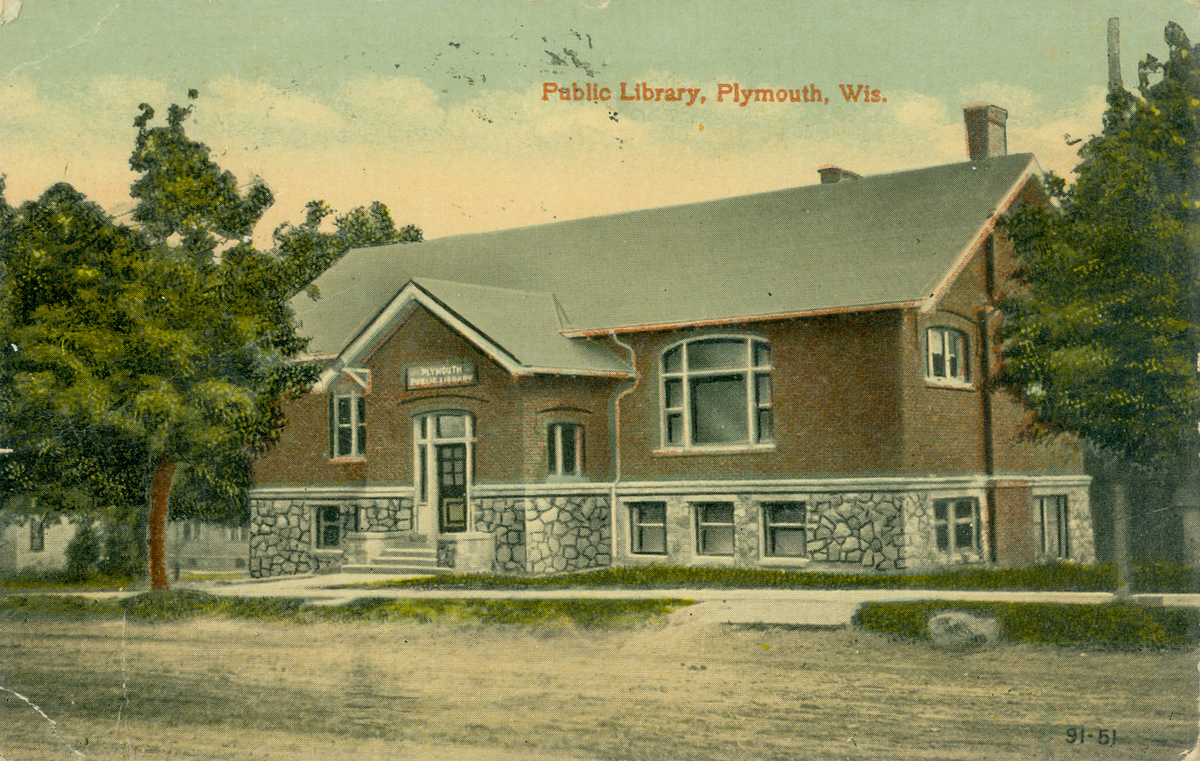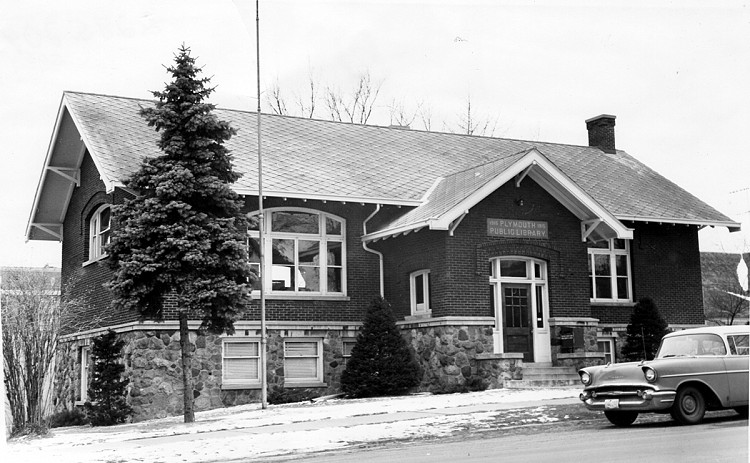Andrew Carnegie was often referred to as the ‘Patron Saint of Libraries.’ Carnegie donated over 56 million dollars for the construction of over 2,500 library buildings throughout English-speaking parts of the world. He also donated $40,000,000 for the construction of 1,679 public library buildings in the United States. Sixty Wisconsin communities were the recipients of his public library grants. Two academic institutions also received Carnegie library grants. Fourteen of these Carnegie buildings were razed and twenty-eight no longer operate as libraries. However, 23 of the original facilities are still being used as public libraries. Most of the original buildings have received various expansions and modifications – in some cases, the expansion is larger than the original Carnegie building. One of the original libraries still in use is the Plymouth Public Library. The city of Plymouth received its $10,000 Carnegie grant in 1908, with the building being completed in 1915. On March 26, 1913, 30 women gathered to organize a Plymouth Woman’s Club with membership that quickly grew to 78 members. In July of that year, the club became part of the General Federation of Women’s Clubs. To improve the community, the Plymouth Woman’s Club secured a Carnegie library by soliciting funds to buy the Tillotson property, which became, and remains, the site of the library. On January 19th, 1916, the ladies held their first meeting in the basement of the new Plymouth Public Library. The club continued to meet in this room until 1962. The Carnegie library building in Plymouth has been incorporated into an expanded Plymouth Public Library. Preserved in its entirety, the Carnegie building underwent a major addition at the rear of the building in 1988. The main entrance to the expanded building can be found at 130 Division Street, while the original Carnegie building faces north on East Main Street. The Plymouth Public Library Foundation proudly sponsors Historic Plymouth Public Library by artist Nancy Bennett.

